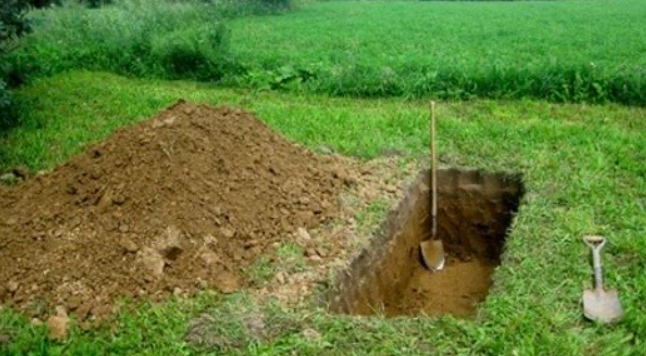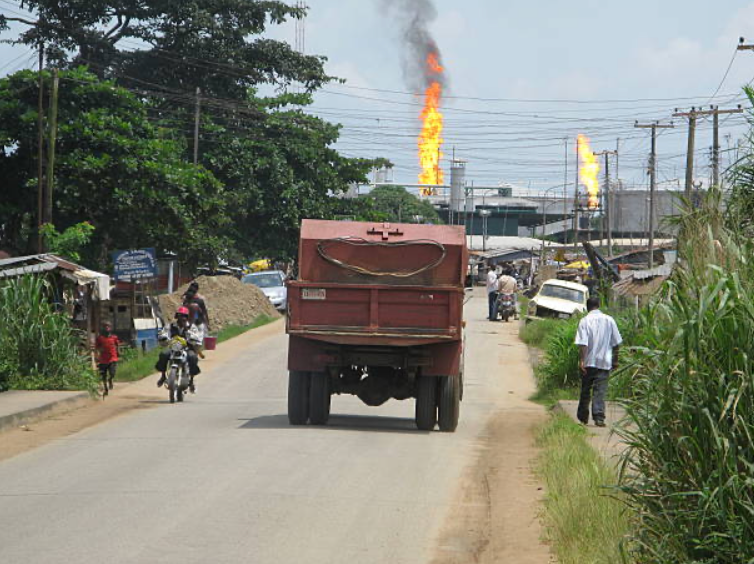When The Truth Is Makes You Uncomfortable, Just Bury It
- Protect Democracy

- Jun 25, 2025
- 4 min read
Louisiana Finds A Solution To The Problems Of Objectivity & Fact-Finding

-by Protect Democracy
A Tulane University environmental researcher, Dr. Kimberly Terrell, was forced to leave her position with the university’s Environmental Law Clinic after years of publishing results of her research that documented, totally unsurprisingly, racial bias in location of highly-polluting industries, racial bias in hiring, and the health impacts of polluting industries being located in populated areas. The Clinic supports communities that are engaged in legal disputes with polluting industries, many of which are located along the Mississippi River between New Orleans and Baton Rouge; in the part of the state commonly known as “Cancer Alley.”

The only thing that should be controversial about Dr. Terrell’s work is the fact that the findings are well documented and verifiably true. The university should be lauded for supporting and publishing this important research, which, in a sane, non-corporate-controlled world, would lead to policy changes to address these injustices. Instead, the university administration complained that the study “has become an impediment to one of the university’s redevelopment projects” (euphemism for “pisses off major donors”).
“I cannot remain silent as this university sacrifices academic integrity for political appeasement and pet projects,” Terrell wrote. “Our work is too important, and the stakes are too high, to sit back and watch special interests replace scholarship with censorship.”
The recent paper written by Dr. Terrell et al that seems to be the cause of much of the blowback from the state and corporate donors clearly documents racial bias in hiring and disproportional harm to communities of color.
The promise of job creation has always been the bait that polluting industries use to win approval for building new facilities in poor communities. History has shown, repeatedly, that the promises are seldom if ever kept.
These facts seem to have had no impact on the position of the administration of the University, which is that donors’ priorities are our priorities.
Marcilynn Burke, dean of Tulane’s law school, wrote in a May 4 email to clinic staff that Tulane University President Michael Fitts worried the clinic’s work threatened to tank support for the university’s long-sought efforts to redevelop New Orleans’ historic Charity Hospital as part of a downtown expansion.
“Elected officials and major donors have cited the clinic as an impediment to them lending their support to the university generally and this project specifically,” Burke wrote
In her resignation letter, Terrell wrote that she had been told the governor “threatened to veto” any state funding for the expansion project unless Tulane’s president “did something” about the clinic.
Emails from May show that Burke denied requests from Terrell to make comments in response to various media requests, correspondence and speaking engagements, saying they were not “essential functions of the job.”
The conflicting interests of communities and corporations is not a new phenomenon. However, the university’s leaders have shown where their priorities lie.
Emails from May show that Burke denied requests from Terrell to make comments in response to various media requests, correspondence and speaking engagements, saying they were not “essential functions of the job.”
I had a chance to speak with an acquaintance who spent years working in the oil fields in third-world countries. The story of Louisiana’s cancer alley is really no different than the stories of underdeveloped countries that have been both blessed and cursed with abundant natural resources. Despite the rhetoric from the multinational corporations that operate in these countries, their only priority is extracting the resources they want, with little or no regard for the lives or health of the communities that are affected by their operations. Government agents and regulators, well rewarded for their complicity, greenlight projects with little regard for environmental and health impacts, and suppress protests and dissent. The cover story is always job creation and economic development, and it almost always falls short of what is promised. My friend spent some time working in an oil industry-dominated area in Nigeria, pictured below, that at the time had a population of more than 150,000. The city never saw a night sky as gas was being flared 24 hours a day, 365 days a year, with flames sometimes more than 150 high. The heat is intense even miles from the flares, and the sky above the region is filled with soot. Cancer alley has the same health problems, shortened life spans, and poverty as the third world towns and provinces whose economies are dominated by many of the same multinational corporations.

In countries that have little or no democratic institutions, the police and military act as enforcers for the foreign corporations and corrupted government officials. This was documented in Amy Goodman’s award-winning 1998 Documentary, “Drilling and Killing.” (Note: my friend adds that since the time of this documentary, Nigeria has had a successful transition to democratically-elected government that has lasted more than 25 years. The problems of environment, health impacts, short life spans, and poverty; all enabled by corrupted government agents, have not gone away. However, he did want to clarify that the dictatorship that existed at the time the documentary was made is no longer in place. Many other resource-rich developing countries are still governed by unelected dictatorships, and suffer the same problems).
I have long believed that the US is in a slide towards third-world status. The decision by a major, prestigious university to bury research that documents the real impact of extractive and chemical processing industries is what we would expect to happen in a third-world country.
In a May 21 audio recording obtained by the AP, Provost Robin Forman said that when Tulane leadership met with elected officials in April, they were pressed as to why “‘Tulane has taken a stand on the chemical industry as harming communities’,” and this “left people feeling embarrassed and uncomfortable.”
Embarrassed and uncomfortable? Well-documented health problems, structural poverty, and lack of job opportunities, should make people in charge embarrassed and uncomfortable. What the story of Tulane and Dr. Terrell tells us is that they have no intention of making any real changes.







Comments